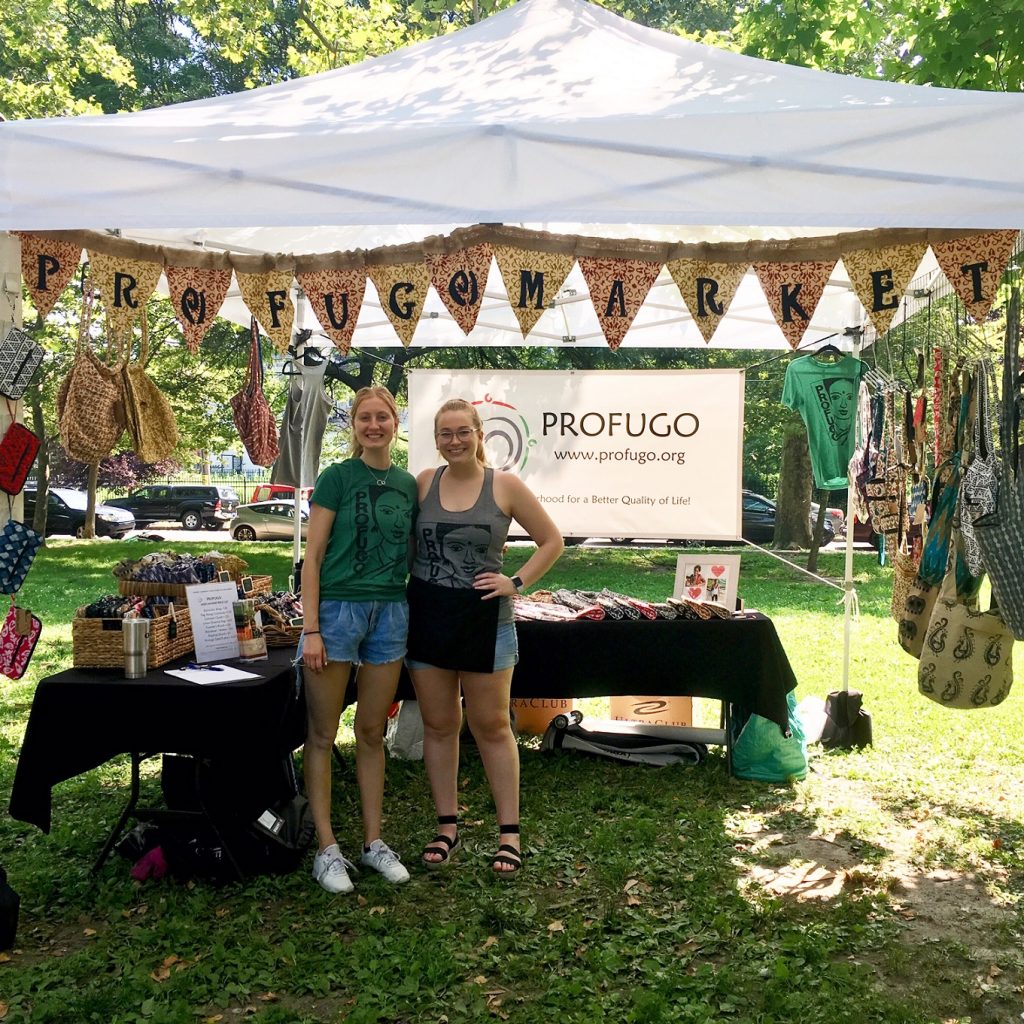The year is 2008. Jenny and Ashwin Koleth, along with friends, have spent  countless hours on the ground and in the office preparing to launch their non-profit. They have seen the devastating effects of powerlessness in many places around the world, and they have decided to spark change. They are hopeful that all the work they have done will pay off, improving the lives of community members in southwestern India. Just a year after they began this venture, Profugo established its first community project in Wayanad, India. Since then, Profugo has touched the lives of hundreds of Indian citizens with its initiatives in infrastructure development, health and wellness support, English education, and vocational training.
countless hours on the ground and in the office preparing to launch their non-profit. They have seen the devastating effects of powerlessness in many places around the world, and they have decided to spark change. They are hopeful that all the work they have done will pay off, improving the lives of community members in southwestern India. Just a year after they began this venture, Profugo established its first community project in Wayanad, India. Since then, Profugo has touched the lives of hundreds of Indian citizens with its initiatives in infrastructure development, health and wellness support, English education, and vocational training.
Profugo, which means “refugee” in Italian, is committed to providing disadvantaged communities with the tools and resources they need to lead better lives. With some help, these individuals can break the pervasive, generational cycle of poverty in which they live. Profugo has had many successes doing just that.
Villagers of Prashanthagiri have access to water, some for the first time. Field staff have implemented educational workshops that teach community members about the effects of pesticides and organic farming techniques. In the village, Profugo has trained and employed many women as tailors, who create beautiful handmade bags, wallets, and more. Fellows developed an English Language School, where over forty children and adults are learning spoken English. Several times throughout the year, Profugo also holds health education forums, which aim to improve daily hygiene practices and teach villagers preventative health techniques.
Field fellows, in-country staff, and community members contribute an invaluable amount of work towards Profugo’s efforts in India. What many people might not realize is the countless hours of work that staff, board members, interns, and volunteers devote to the cause here in the United States.
Profugo’s headquarters is located in Ardmore, Pennsylvania. Board members hail from all over the country, volunteers travel from far and wide to help out, and interns represent many Philadelphia area colleges and universities. Profugo’s Executive Director, Jenny, says “being a global citizen is a privilege and my responsibility” and she exercises that passion through her work at Profugo. She has remained steadfast in her commitment to cultivating a global neighborhood because “with each person, family, or village that Profugo impacts, [she is] reminded of the importance of the work that we do.” She has inspired many others to become involved in Profugo’s work as well.
Profugo’s board members share their expertise with the organization year after year. One board member, Emily, spent two years as a fellow in Wayanad. She has remained involved with Profugo in the States because she “witnessed the transformation of some people who are working with Profugo in the village, how hard they work, how proud they are of their accomplishments, the boost in confidence [their work brings].” She believes that a good quality of life stems from “Health, education, women’s empowerment, income generation, [and] natural resource management.” Board members dedicate their time and energy to further develop initiatives and programs that realize Profugo’s mission.
Every year, Profugo takes on about fifteen interns and dozens of volunteers, who have described their work as authentic, heartfelt, and rewarding. During their tenure, interns contribute to both the daily operations and the long-term goals of Profugo. Many interns have said they sought out Profugo with a vague interest in international development, but came away from their experience with a strong desire to become more involved in this space. A previous intern, Priya, says, “Many issues around the world could potentially be solved if more people were willing to adopt the idea of a ‘global neighborhood.’ I plan to remain involved in nonprofits whose values I admire, and hopefully will someday make a career out of it!” When asked how her work at Profugo informs her daily practices, intern Nora said, “Working at Profugo taught me that through advocacy and creativity, one can make positive changes from any part of the world. And I take that mindset with me everywhere.” Interns take pride in the work they do to catalyze change on a global scale and find fulfillment in being part of the Profugo community.
Board members, interns, and volunteers make up the stateside personnel of Profugo. We might not always be in front of the camera, but our behind-the-scenes contribution to Profugo’s work makes the organization tick, day in and day out.

Leave a Reply
You must be logged in to post a comment.